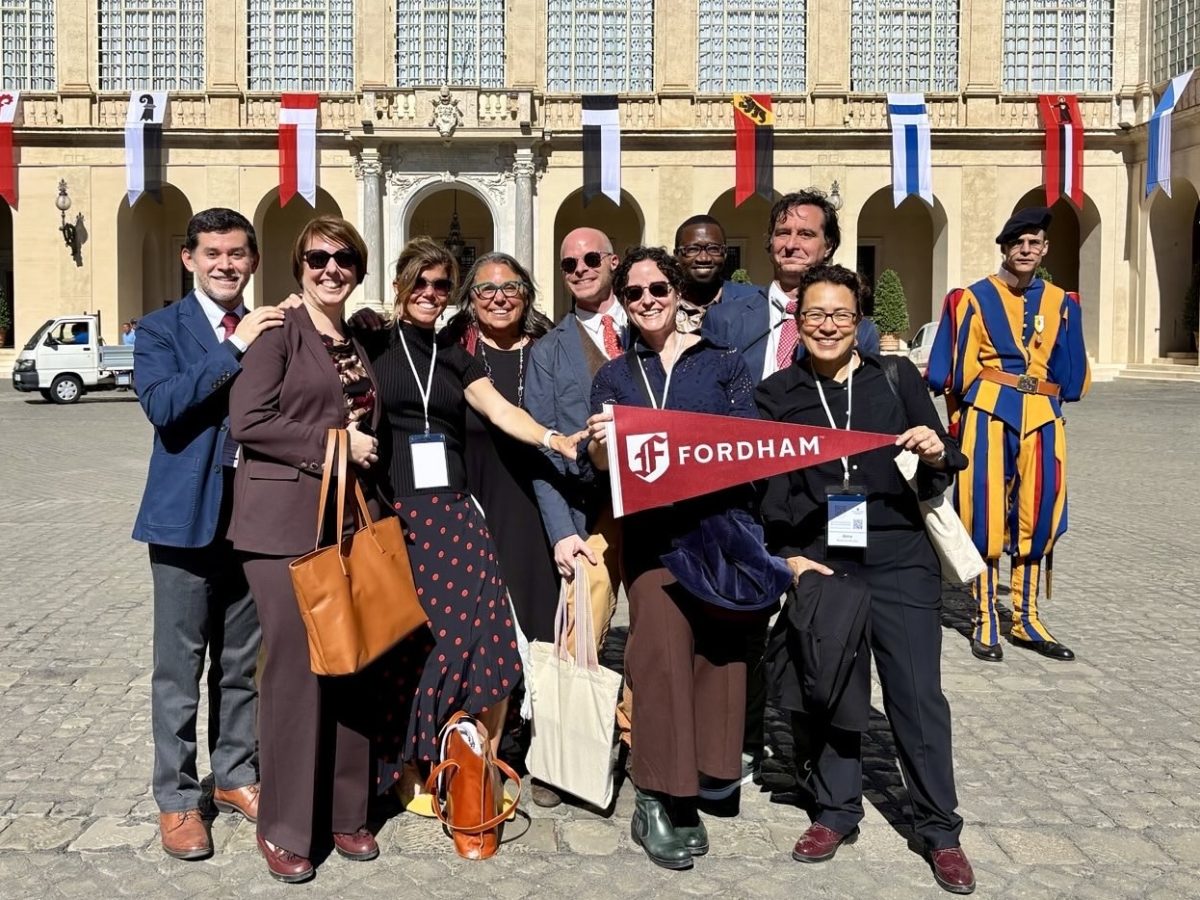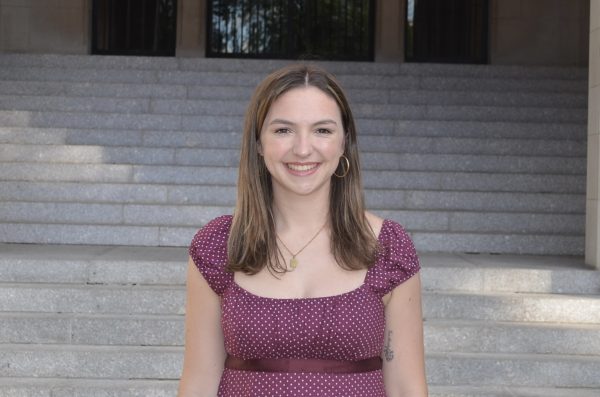Seven faculty members from Fordham University’s Initiative on Migrants, Migration and Human Dignity traveled to Rome earlier this month for a conference at the Vatican titled “Refugees and Migrants in our Common Home: Mobilizing Academic Communities.”
The event lasted from Oct. 1 through Oct. 3 and included presentations and discussions on migration justice.
The conference was organized by several groups, including the Center for Migration Studies of New York and Villanova University, according to an article by Fordham Now, to facilitate discussions to create three-year action plans about migration justice.
“It was primarily focused on how universities could be mobilized to bring both research, teaching and service in support of migrant communities and refugee communities,” said Gregory Donovan, an associate professor of communication and media studies and a member of the Initiative on Migrants, Migration and Human Dignity.
Six other members of the initiative attended the conference, including Carey Kasten, Sarah Lockhart, Alma Rodenas-Ruano, Leo Guardado, Jim McCartin and Annika Hinze. Other attendees included faculty from 13 other Jesuit universities, such as Villanova, Boston College and the University of Seattle, and members from non-governmental organizations, according to Donovan.
Throughout the event, participants presented research and participated in working groups where they discussed action plans that could be implemented over the next three years. The presentations and discussions all surrounded the topic of migration.
On the first day, Kasten presented “Collaborative Research and Advocacy with Migrants Across the U.S.-Mexico Border” with partners from the University of Seattle, Ibero-American University Puebla and Radio Huaya, according to the Initiative on Migrants, Migration and Human Dignity’s Instagram page.
On the second day, Donovan, Hinze and Rodenas-Ruano presented their research on “Urban Accompaniment: Migrant Journeys Beyond the Borderlands,” which involves looking at how policy, technology, health and wellbeing intersect with migrant accompaniment in New York City and the southern border.
McCartin also gave a presentation on the work the initiative does.
Attendees were also invited to a private audience with Pope Leo XIV on day two, where he gave an address in English. The pope discussed the current issue of immigration and encouraged attendees to find ways for reconciliation.
“I would encourage you, therefore, to propose concrete ways to promote gestures and policies of reconciliation, particularly in lands where there are deep-seated wounds from long-standing conflicts,” the pope said. “This is no easy task, but if efforts to work for lasting change are to succeed, they must include ways to touch hearts and minds.”
Donovan said that he appreciated the pope’s speech as it related to the work the Initiative on Migrants, Migration and Human Dignity does.
“[He] was primarily talking about migration justice and that this is something that Catholic universities in particular should be focusing on and assisting,” Donovan said. “So that was great, just to sort of have that recognition for the work and just for the idea of a Jesuit university like Fordham seeing migration justice as part of their overall mission is great when you’re doing that work and when you’re teaching courses like that.”
Donovan said he thinks the pope’s speech was a way to show that he is continuing the work of the late Pope Francis regarding migration justice.
“There’s a real continuation in terms of the language that the two popes kind of used around this idea of migration justice, and specifically this idea of looking at migrants as missionaries of hope,” Donovan said.
The faculty members also presented the pope with a letter outlining the work of Fordham’s migration initiative.
Donovan enjoyed the conference overall because it allowed him to meet people he had previously been in contact with over email, he said. He also said he enjoyed conversing with people from various countries.
“Because it was relatively small, you really were able to get to know some people from other universities,” Donovan said. “So that was also a nice thing about it, to have, like, a real international discussion at this moment in time.”







































































































































































































